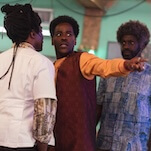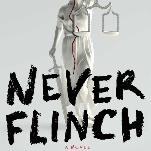Writer and ex-MI6 agent John le Carré—born David John Moore Cornwell—developed a reputation early as a more sophisticated kind of spy novelist, less interested in gadgetry and gunfights than in process, relationships, and culture. He based his books on people he knew and places he’d been, and on the peculiar circumstances that arise when people pretend to be people they aren’t. In 1974, le Carré released Tinker Tailor Soldier Spy, drawing the plot from the real-life case of Kim Philby, a high-ranking agent in British intelligence who secretly worked for the KGB, and who was responsible for blowing le Carré’s cover. In Tinker Tailor Soldier Spy, le Carré’s frequent protagonist George Smiley is tasked to root out a mole in “the Circus”—the author’s version of the British secret service—and to do so even more covertly than usual, since the suspected double-agent might be one of the agency’s bosses. As Smiley pursues his investigation, le Carré explores the office politics of an organization where the employees are allowed to kill each other.
A feature-length movie version of Tinker Tailor Soldier Spy hits theaters December 9, but there’s already a fine adaptation of the novel: a six-hour 1979 BBC miniseries that became a hit in America when it aired on PBS. The TV Tinker Tailor is leisurely, to put it mildly. Some episodes consist of extended flashbacks, only tangentially related to the main plot; others are taken up by long conversations that reveal Smiley’s backstory and explain why he was on the outs with the Circus prior to being called to go mole-hunting. There are a few moments of genuine suspense in Tinker Tailor Soldier Spy: terse interrogations, emotionally fraught encounters between people with secrets, lengthy dialogue-free cat-and-mouse chases, and the like. But the miniseries takes its time, attempting to get across the workaday nature of espionage, as agents bitch about bureaucracy and make fun of the other law-enforcement arms they’re supposed to be working with, all while making sure their paperwork is in order and their requisitions are going through.
Generally speaking, this sort of insidery detail reads better on the page, but the Tinker Tailor miniseries has one big gun to deploy: Alec Guinness. Playing Smiley as a bitter retiree carrying a lifetime of grudges, Guinness embodies what Tinker Tailor Soldier Spy is really about. In flashbacks, we see Smiley as a more idealistic agent, trying to urge a Soviet super-spy (played silently by Patrick Stewart) to switch sides. But during his investigation, he hears his fellow agents talk about the two sides in the Cold War as being morally equivalent, and as he gets closer to the truth, Guinness’ Smiley seems to be pursuing this case less for the good of his country than for the opportunity to find somebody involved in this game who actually believes in something.
Key features: A genial half-hour interview with le Carré.








































